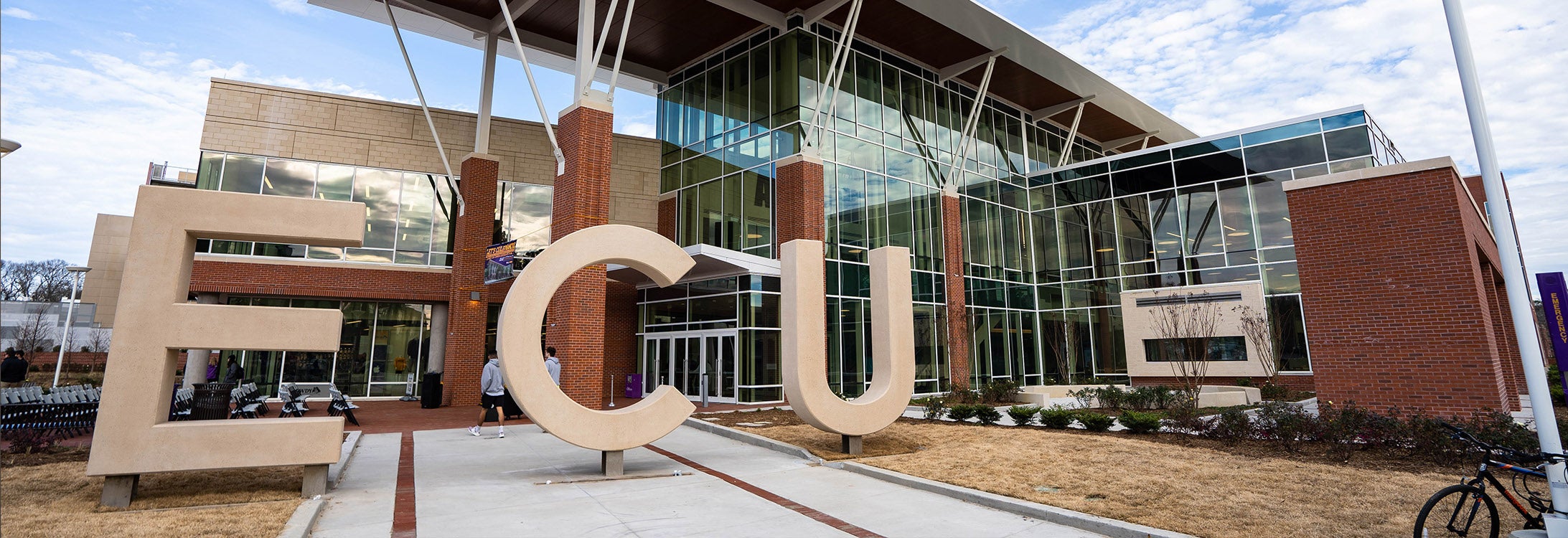ECONOMIC ENGINE
Study finds ECU’s statewide economic impact totals more than $2.5B
East Carolina University’s annual economic impact across the state exceeds more than $2.5 billion, a 2019 study led by a team of Pirate researchers found.
In total, the university supports more than 27,000 jobs, with nearly 96% of those jobs concentrated in eastern North Carolina.
Conducted by ECU economic professors Meghan Millea and Haiyong Liu and former College of Business director of professional services and research James Kleckley, the study tracked the influence of university-related spending through university operations, student spending, visitor spending, capital expenditures and alumni dividend.
Overall, university operations spending accounted for 71.5% of the university’s total economic impact. University operations spending includes funds for employee salaries and purchases of goods and services to maintain daily operations.
Student spending was second on the list, accounting for 14.6% of total impact, while capital expenditures and visitor spending accounted for 5% each.
“Universities are economic engines,” Millea said. “ECU’s instruction prepares our graduates for careers, expands their minds through enriching programs, and improves their quality of life through its research and creative endeavors. This study quantifies how ECU’s spending on these transformative functions impacts the state and regional economies in terms of output, income and employment.”
The university’s research enterprise provided an $86 million economic output, according to the study, while supporting 912 jobs. ECU researchers have set new benchmarks in productivity over the last five years, reaching a record-high $74 million in sponsored program funding in fiscal year 2019.
Additionally, the university has increased its support of Pirate-backed small business ventures, ranging from medical imaging startup companies to student-led graphic arts companies. During the 2019 fiscal year, the university assisted 32 startup companies through the Small Business and Technology Development Center at ECU; supported 29 student-led microenterprises; and helped create or retain 336 small business jobs.
“ECU is often labeled as the engine of growth for the east,” ECU Interim Chancellor Ron Mitchelson said. “There’s no mistaking the university’s direct and indirect impacts on the regional and state economy. We contribute to a talented workforce, we bring students and their expenditures from all across the state to Greenville, we engage in applied research to address important regional challenges, and, most recently, we contribute to landscapes of innovation like Intersect East. When we stay focused on the success of our students and the success of our region, we also maximize our impact. I am very proud of our mission and our economic contributions.”
Overall, ECU’s alumni base of 170,000 accounted for $75.5 million in spending across the state, including $6.3 million in eastern North Carolina.
Data for the report was gathered and analyzed before the coronavirus pandemic. Like many academic institutions across the country, ECU and its economic impact have been affected by the coronavirus.
The full report, along with the research team’s methodology, is available online at go.ecu.edu/economy.
